The ISS will have a new piece added soon.
Click on image for full size
Courtesy of NASA
Russians Launch ISS Module
News story originally written on July 13, 2000
After two long years of problems, the day has finally come! Russia launched
the important Zvezda module for the International Space Station (ISS). This module
will hold the main controls of the station and is also the living area for the astronauts that visit.
Russian officials say the module is in orbit and functioning well. Financial problems and trouble with the Proton rocket have
delayed the launch for two years. Fortunately, the module was completed and delivered safely.
Scientists say the station will not be completed before 2005. However, astronauts will
soon visit the station and projects will begin.
You might also be interested in:
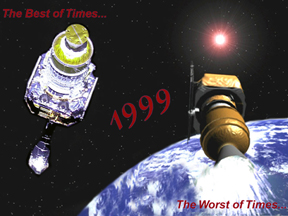
It was another exciting and frustrating year for the space science program. It seemed that every step forward led to one backwards. Either way, NASA led the way to a great century of discovery. Unfortunately,
...more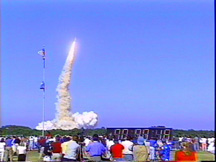
The Space Shuttle Discovery lifted off from Kennedy Space Center on October 29th at 2:19 p.m. EST. The weather was great as Discovery took 8 1/2 minutes to reach orbit. This was the United States' 123rd
...more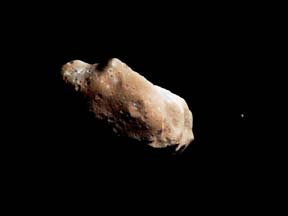
A moon was discovered orbiting the asteroid, Eugenia. This is only the second time in history that a satellite has been seen circling an asteroid. A special mirror allowed scientists to find the moon
...more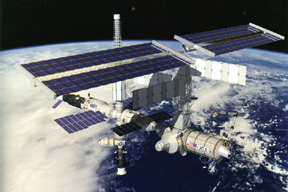
Will Russia ever put the service module for the International Space Station in space? NASA officials want an answer from the Russian government. The necessary service module is currently waiting to be
...more
A coronal mass ejection (CME) happened on the Sun early last month. The material that was thrown out from this explosion passed the ACE spacecraft. The SWICS instrument on ACE has produced a new and very
...more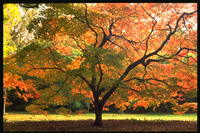
J.S. Maini of the Canadian Forest Service called forests the "heart and lungs of the world." This is because forests filter air and water pollution, absorb carbon dioxide, release oxygen, and maintain
...more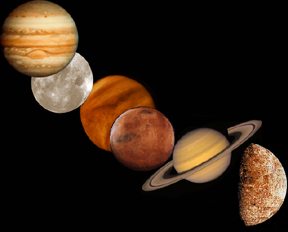
In late April through mid-May 2002, all five naked-eye planets are visible at the same time in the night sky! This is includes Mercury which is generally very hard to see. You won't want to miss this!
...more














